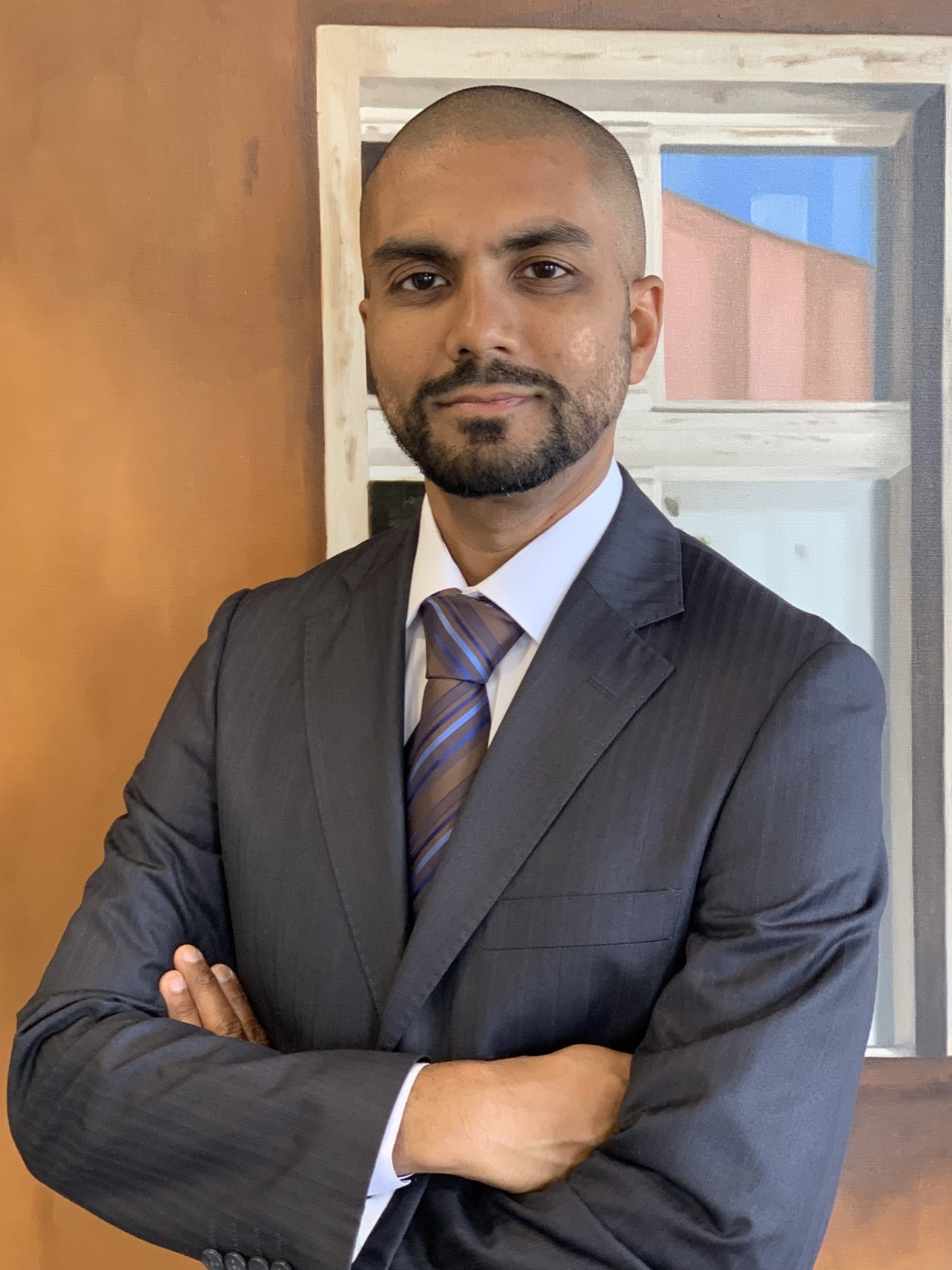TOBAM has a long-standing commitment to uphold environmental, social and governance issues
Since its beginnings, TOBAM has decided that sustainable development would be explicitly core to its values.
Our clients have a long-term approach to investing and our sustainable way addresses these considerations. TOBAM has a long-standing commitment to uphold long term considerations. These principles are integral in the rules structuring our activities.
We aim to act in a socially responsible manner via our business, our social relations and our long term vision of sustainable growth. Furthermore, TOBAM and its stakeholders endeavour to actively promote best standards and implementation both at the client level and the industry level.
TOBAM’s sustainable way relies on two pillars: the Sustainable Responsible Investment approach and our internal corporate engagement and actions.
interview Ayaaz Allymun, Head of Sustainability - January 2020

In addition to what is done at the portfolio level, TOBAM is recognized as a responsible company from a corporate point of view, what are the drivers behind tobam’s sustainable corporate initiative?
At TOBAM we believe it is very important to set an example in terms of sustainability issues and to encourage others to apply long term focused business practises. This is the main reason why we have decided to adopt a very proactive corporate social and responsible policy. After all, it would have been quite hypocritical to take into account the sustainability of the corporate strategies of the companies we invest in, and not, at our own level, to behave properly!! The Sustainable committee in which I take an active part, meets every quarter not only to discuss challenges and projects in regards to sustainability integration at the portfolio level but we also onboard ideas at the corporate level. Let me take two examples:
As an asset manager, TOBAM’s direct environmental impact is fairly limited compared with the pollution generated by industrial activities. However, we are keen to play our role in the global sustainability challenge by controlling our impact through a proportionate two-tier approach, relying on both mitigation and offsetting.
what is the origin of TOBAM’s commitment to Sustainability?
TOBAM’s mission is to provide rational and professional solutions to long term investors in the context of efficient markets. Back in 2005, when Yves Choueifaty first articulated what will become TOBAM, it was clear to him that serving institutional investors around the world, would imply taking into consideration a long-term horizon. This is what the Maximum Diversification approach is about, delivering an “equilibrium” portfolio, whatever the market cycle, whatever is happening in financial markets, however long you keep the portfolio, you get what we promise: Maximum Diversification.
In that spirit, since our clients have a long-term investment horizon and have to deal with major sustainability-related challenges that lead to tangible impacts on investment portfolios, we decided very early on, in 2007 to incorporate sustainability criteria into our investment process.
Sustainable investing is not meant to highlight a moral point of view, it is not meant to determine what is good or what is bad (also we believe that integrating sustainability criteria is not meant to provide additional performance on the short term), it is however instrumental in managing risks and makes sense in the context of long-term investments.
As part of our fiduciary duty, TOBAM is committed to protecting its clients’ interests by taking into account most of the factors that could impact the financial performance and/or risk profile of investee companies. As a result, sustainability issues cannot be considered as “extra-financial” criteria, as they form an integral part of the factors to be considered, alongside traditional ones.
what is different about TOBAM’s approach to sustainability and responsibility?
TOBAM’s onboarding of sustainability took place very early on in the development of TOBAM, and has been expanded over the years by the continuous contribution of employees, clients, shareholders and partners. The journey has led us to establish some investment beliefs around our vision of what should be a responsible investment policy at TOBAM. Let me share with you two of the key beliefs that I believe are quite differentiating.
As explained earlier, the first belief is around the investment horizon. In alignment with the long-term views of our investors, every initiative we take at TOBAM is looked at with a long-term view. Short-term gains may seem attractive but what matters is longevity and sustainability (in terms of resource efficiency, responsible use of resources, human and financial capital etc.).
The second belief I will discuss is that all long term integration enhancements should be driven by research. This principle goes beyond sustainability since research is the driver of all projects at tobam. Hence, as is the case for other investment or optimization innovations, long term integration ideas or projects are driven by research, investigated and documented before being implemented.

Other principles relate to transparency, partners and responsible use of our influence (promotion of good practices via active ownership and engagement).
Our SRI-related policies and reports are freely accessible on our website (Exclusion policy, Engagement policy, SRI policy, Sustainability Report…).
as a quantitative manager, are there any specificities in incorporating long term goals compared to fundamental managers?
There are we believe, two main differences.
The first one is the importance of high quality data and meaningful, raw data. As a quantitative manager we are relying on data, and since our approach aims to deliver the Maximum Diversification®, i.e. the portfolio without bias, we need to take extra care as to the quality of the data. We have, very early on, decided to use raw sustainability data, instead of scorings or ratings. Our research team has conducted thorough analysis on the data, scores and various ratings from various providers and the conclusion was that given the lack of correlation between the various providers rating’s, using raw and high-quality data from the company was the safest and most rational option. This is a cause we are pleading before parties involved in setting up framework such as the TCFD to make sure the data are is rigorous and based on a common framework, so that the quality of data is as publicly available and rigorously published as traditional financial data.
The second major difference is our capability to back test and proof-test potential changes or enhancements to our process. Let me take an example, when we decided to include a constraint to reduce the carbon footprint of our strategies compared to their reference benchmark, we were able to rigorously measure the impact of such a constraint on our strategies. Since our process is systematic, we can actually measure the portfolio characteristics with the constraint and without the constraint. This is a very significant competitive edge of quantitative managers compared to traditional managers.
In this case, we have been able to demonstrate that the addition of the constraint did not significantly impact the risk return profile of our strategies, nor their diversification benefits as measured by the Diversification Ratio®. This has been documented, measured and published in various research notes. The same process was in place when we introduced the exclusion list, we are able to very precisely quantify the impact of the application of the exclusion list to our investment universe for TOBAM’s strategies.
Since our main objective is to deliver again Maximum Diversification®, this is a crucial added value for our clients to be able to exactly document the impact of any additional constraint or criteria on the strategy and in practice assured that we deliver what we promise.

in addition to what is done at the portfolio level, TOBAM is recognized as a responsible company from a corporate point of view, what are the drivers behind TOBAM’s sustainable corporate initiative?
At TOBAM we believe it is very important to set an example in terms of sustainability issues and to encourage others to apply long term focused business practises. This is the main reason why we have decided to adopt a very proactive corporate social and responsible policy. After all, it would have been quite hypocritical to take into account the sustainability of the corporate strategies of the companies we invest in, and not, at our own level, to behave properly!! The Sustainable committee in which I take an active part, meets every quarter not only to discuss challenges and projects in regards to sustainability integration at the portfolio level but we also onboard ideas at the corporate level. Let me take two examples:
As an asset manager, TOBAM’s direct environmental impact is fairly limited compared with the pollution generated by industrial activities. However, we are keen to play our role in the global sustainability challenge by controlling our impact through a proportionate two-tier approach, relying on both mitigation and offsetting.
An external auditor annually calculates TOBAM’s carbon emissions. We then offset 150% of our carbon footprint by financing reforestation programs. While we strive to introduce mitigation efforts wherever possible, some of the impacts cannot be significantly reduced. In these cases, carbon offsetting is a way of making a concrete contribution in response to environmental issues.
Another initiative we took back in 2011, is to sponsor NGO dedicated to human rights in the world. When we launched our emerging markets equity strategy, back in 2011, we were concerned by the human rights challenges in some of these regions, after all investing in emerging markets helps the people of emerging markets but could also support indirectly governments that are not exactly human rights friendly and this is not aligned with the long term interests of our investors. Furthermore, we decided to donate a part of our revenues to NGO’s defending human rights worldwide, offsetting in a way the support we could be providing to instances or governments not fully respectful of human rights. We consider indeed that fundamental human rights are the optimal enhancer to creativity, innovation and, ultimately, to long-term economic growth.
Also, I would like to share the initiative we took a few years ago now, the “Employee Sustainability Initiative”. In order to encourage and raise even more the employee’s awareness with regards to sustainability issues as well as to benefit from their ideas and experience, each year, TOBAM invites employees to submit a proposal which will enhance the contribution of the firm to such long term related challenges and opportunities. The employee that comes up with the best ideas will implement it, and will receive a prize.



